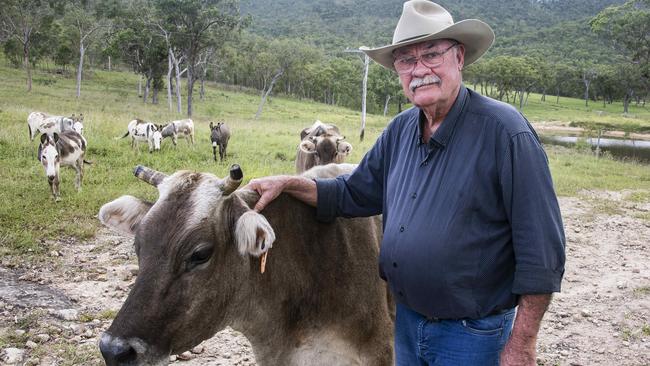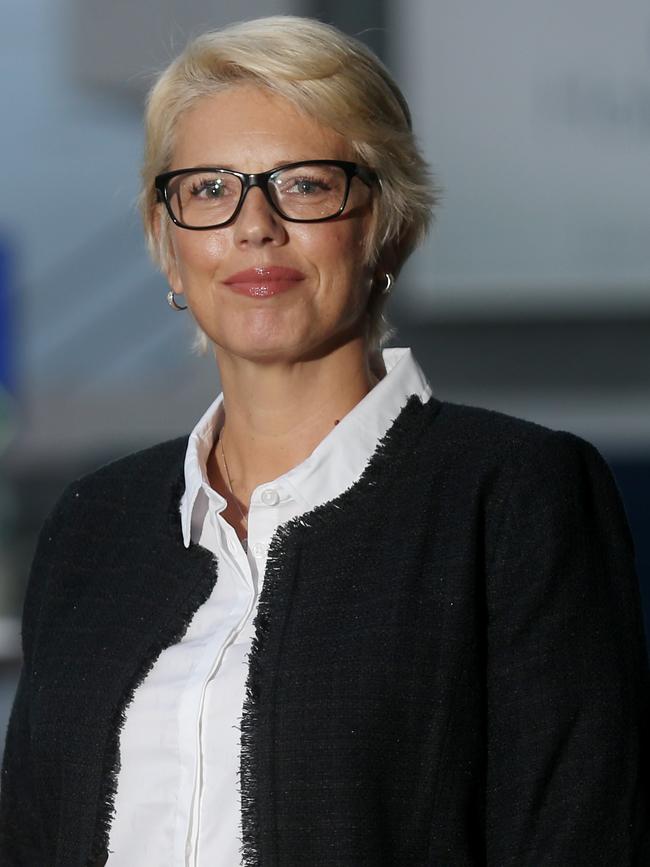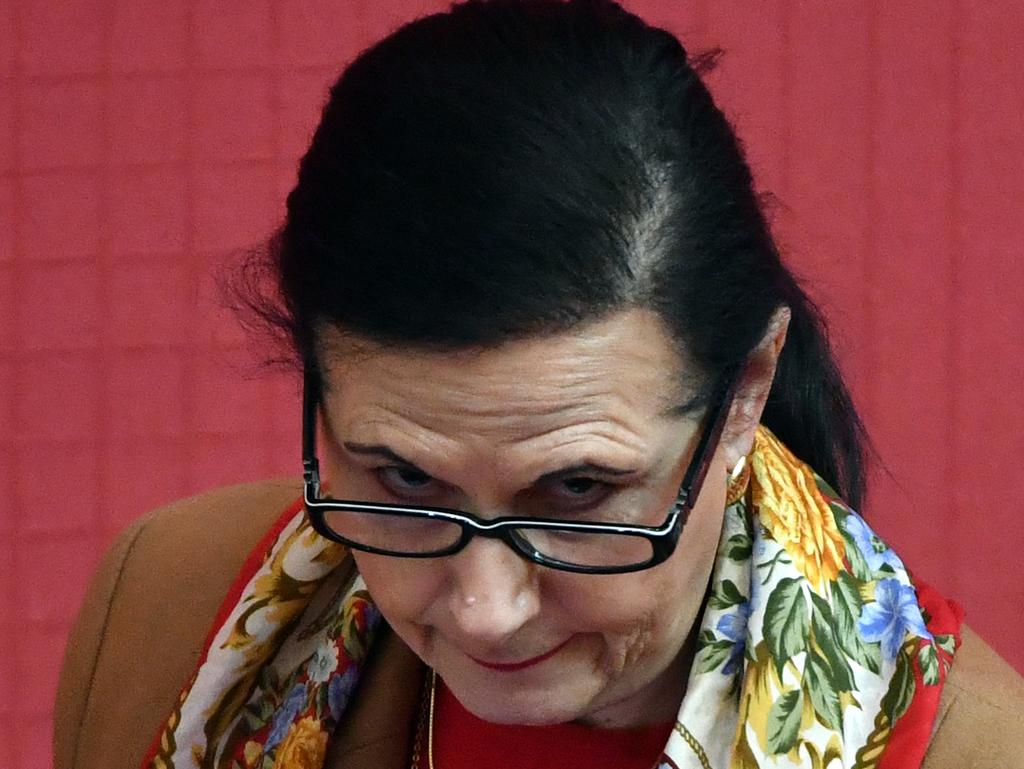Quit after nine campaigns? It’s not Liberal Warren Entsch’s way
Warren Entsch has seen plenty since heading to Canberra, but nothing like what the nation has endured this term. But he’s up for the challenge.

Where to start with Warren Entsch? He led quite the life in Australia’s tropical north, farming crocodiles and rabble-rousing as a union delegate, before politics called for the Liberal Party.
At 71, he’s the last man standing for the Coalition from the fabled class of 1996 of incoming MPs that laid the platform for John Howard to become a four-term prime minister and, across the aisle, launched the parliamentary career of a certain Anthony Albanese.
Mr Entsch’s sprawling seat of Leichhardt, reaching from Cairns to the Torres Strait, is key to both sides’ prospects in the coming federal election.
If he can hold, it could mark the second coming of Scott Morrison and Howard-esque longevity for the government.
If not, a Labor win in Leichhardt might well be the icing on the cake to make Mr Albanese the nation’s 31st prime minister.
“I think I’ve got a fair chance,” said Mr Entsch, who faces voters next month on a vulnerable margin of 4.2 per cent.
“I wouldn’t say I could guarantee it because I am not that confident. There are a lot of angry people out there.”
In his larger-than-life way, he has been a talisman of Liberal fortunes for the past quarter of a century. Mr Entsch has prevailed on the eight occasions he contested Leichhardt – excluding, of course, the 2007 election that brought the ALP to power under Kevin Rudd, delivering Mr Albanese a senior ministry and ultimately the deputy prime ministership.
Mr Entsch sat that one out, retiring before the boom was lowered on the Howard government. Prescient as the decision was – the seat went to Labor – he insists it was a promise he had to honour to his then-teenage son, Jake, to be at home more.

He returned to Canberra in 2010 and established himself as one of parliament’s great survivors, winning again in 2013 when Tony Abbott led the Coalition back to power, in 2016 under Malcolm Turnbull and three years ago after Mr Morrison defied the pre-election opinion polls to snatch a “miracle” victory, as he hopes to do once more.
But there had never been a term like this in the life of the nation, Mr Entsch said: bushfires in 2019-20, pestilence in the form of a rural mice plague, actual plague with Covid-19 and now floods in southeast Queensland and northern NSW topped off by war in Europe.
“It’s been a hell of a strain,” he said.
“People are tired, frustrated, they are sick of it.”
The virus had taken a particularly heavy toll on his hometown of Cairns, the international and domestic border closures devastating its mainstay industry of tourism.
“A lot of people are lashing out, wanting to blame somebody,” Mr Entsch told The Weekend Australian. And guess who was in the firing line?
“It’s going to be the government, and I understand that.”
His Labor opponent, ex-Centrelink call centre worker and public service union organiser Elida Faith, 50, said time was up for the colourful MP after he reneged on a commitment that this term would be his last.
“Why would you want to re-elect somebody for another three years who himself has said he does not want to be here,” Ms Faith said on Friday.
“So, yes, it is time for him to hang up his boots.”
She is backing up after running in 2019 in Leichhardt, where she held the line for Labor in a state that had turned viciously against the party and then leader Bill Shorten.
While Mr Entsch improved his margin slightly, the wider swing that reduced the ALP primary vote in Queensland to 26.6 per cent was contained by Ms Faith, earning her a second shot.
All up, Fortress Queensland delivered 23 of 30 federal seats to the Coalition and saved the Morrison government.
In the process, Liberal National Party marginals eyed by the ALP in 2019 were pushed beyond ready reach this time around.
Take Defence Minister Peter Dutton’s outer-Brisbane electorate of Dickson: it goes from a margin of 1.7 per cent to 4.7 per cent at the coming election; in Gladstone-based Flynn in central Queensland, to be vacated by retiring government MP Ken O’Dowd, the margin for the LNP balloons to 8.7 per cent from 1 per cent.
Michelle Landry in neighbouring Capricornia has a buffer of 12.4 per cent, up from a knife-edge 0.6 per cent at the last election.
After perennially lineball Longman, north of Brisbane (3.3 per cent), Leichhardt on paper is Labor’s best bet to gain ground in Queensland, followed by the metropolitan division of Brisbane held by Trevor Evans (5 per cent), one of only two LNP MPs to shed votes in 2019.
Like other government marginal-seat holders, Mr Entsch is banking on this week’s federal budget to shift momentum and hopefully the opinion polls back their way.
But reflecting on all those years in politics, he sensed a sea change in the electorate. “Expectations are sky high and the budget is a very good example of that,” he said. “It’s more about what each individual group is getting rather than the collective, and it’s getting harder and harder to manage.”
This was compounded by the emergence of political “splinter groups” such as Clive Palmer’s United Australia Party and independents.
Social media “stirred the pot” further.
When he entered parliament, one of 36 new Coalition MPs to take their place in the class of 96, among them future leading lights Brendan Nelson and Joe Hockey, business with his constituents was transacted mostly by mail or on the phone.
Back then his office staff prided themselves on a two-week turnaround to reply to letters. “People accepted that,” Mr Entsch said.
“Today I don’t have a mail room … instead, people will send me an email and if I haven’t responded within half an hour often I’ll get abuse coming back.”

Burly, gruff-spoken and sporting a bushy moustache, he certainly stands out from the grey crowd of today’s MPs.
After leaving school as a 15-year-old, Mr Entsch’s first job was cleaning toilets at the Mareeba railway station, west of Cairns. He went on to work as an aircraft engine fitter in the RAAF and raised crocodiles in the Northern Territory as well as cattle on Cape York Peninsula.
Working on the factory floor of the Yabulu nickel refinery north of Townsville – controversially shuttered by Mr Palmer in 2016 – he became a voluble shop steward for the metalworkers’ union.
Ever the contrarian, he championed gay rights in parliament, despite being warned that speaking out against changes to the Marriage Act under Mr Howard in 2004, specifying a union between a man and woman, could cost him his preselection in Leichhardt. Bring it on, he said.
Later, he was a moving force in the campaign to introduce same-sex marriage through a 2017 plebiscite backed by Mr Turnbull.
It was true, Mr Entsch said, that he had intended to retire at the election tipped to be announced by Mr Morrison next week, ahead of his 72nd birthday on May 31.
“I was ready to go … I was well and truly going to transition out,” he explained.
“But the problem was a thing called Covid. Here, we were the first one in because of tourism, and shutting down the international border was the start of it, and we were probably the last ones to fully recover. In the circumstances … I had to agree with the people who were asking me to stay on.”







To join the conversation, please log in. Don't have an account? Register
Join the conversation, you are commenting as Logout